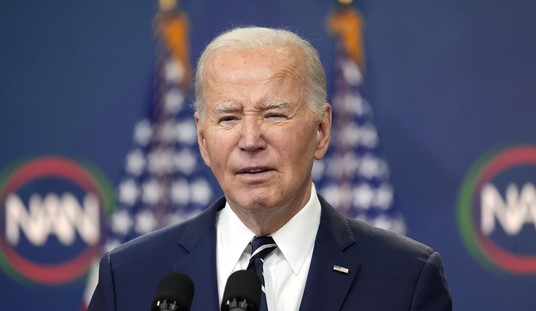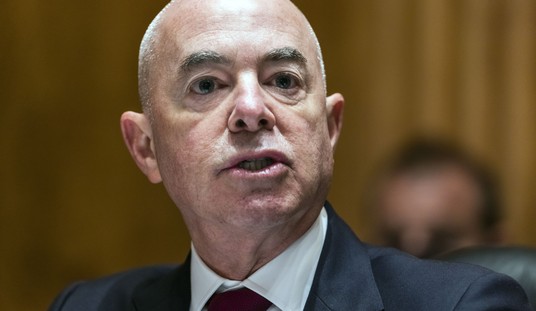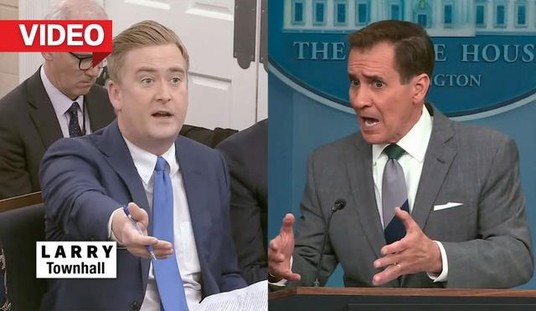Although people in the nation’s smallest state can obtain photo voter IDs with ease, the American Civil Liberties Union (ACLU) says that requiring an ID in order to vote is a hardship.
The group’s Rhode Island chapter has demanded an end to the photo voter ID law that a solidly Democratic legislature enacted in 2011. It’s the latest attack by the ACLU and other leftist groups against state election reforms that are specifically designed to prevent vote fraud.
Over the past few years, courts have struck down laws in Arkansas, Missouri, Pennsylvania and Texas, while upholding them in Georgia, Tennessee, Ohio and Wisconsin. In 2008, the U.S. Supreme Court upheld Indiana’s photo voter ID law, which has been a model for other states. North Carolina’s voter ID law, which also curbs early voting and ends out of precinct voting and same-day registration, went to trial in late July in a federal court.
The charge that such laws “suppress the vote” of minorities, the elderly, the young and the disabled is especially absurd in Rhode Island, where accommodations for people to get a free ID are impressive – from students, to welfare recipients, to the homeless, to senior citizens, to the incapacitated, etc.
If you’re a Rhode Islander and you don’t have an ID, you can’t blame the state government, whose outreach program even includes a mobile phone app that gives a wealth of voter information including GPS directions to the nearest polling place.
Anyone can register to vote upon showing several forms of ID, including but not limited to: “Employee ID card; ID card provided by a commercial establishment; Credit or debit card; Military ID card; Student ID card; Health club ID card; Insurance plan ID card; or a Public housing ID card.”
Recommended
Even If they don’t have one of the above, they can still use any of another 19 items, such as utility bills, bank statements, vehicle registrations, senior citizen or disabled discount cards, or even a prescription drug invoice. About the only thing missing is last week’s grocery receipt.
“You may use either the Rhode Island Voter Registration Form or you may use the National Voter Registration Form,” according to the Secretary of State’s office. “You may register in person or by mail. You may also register with the help of another person who delivers the forms to an authorized official for you.”
Does this sound like voter suppression to you?
Perhaps the ACLU figures that IDs aren’t needed because everybody knows everybody. You might get that impression if all you know about Rhode Island is from watching the crass Fox comedy “Family Guy,” which is set in the fictional town of Quahog.
But you’re still talking about just over a million people. Although smallest in area (37 miles wide and 48 miles long or 1,200 square miles) and eighth smallest in population, the Ocean State is big in the annals of political corruption. Rhode Island is right up there with Massachusetts when it comes to single-party politics.
Democrats control both legislative chambers. The voter ID bill was introduced in the Senate by a black Democrat and co-sponsored in the House by members from both parties. It was signed by Independent Gov. Lincoln Chaffee, a former Republican who is now running as a Democrat.
"As a minority citizen and a senior citizen I would not support anything that I thought would present obstacles or limit protections," said state Democratic Sen. Harold Metts. The law’s author, Democratic Secretary of State Ralph Mollis, told The New Republic that the statute was needed to “address the perception of voter fraud.”
Not fair, says the ACLU, which contends that photo ID laws keep away “minority, low-income, disabled, and elderly voters” who are “less likely to have photo identification.”
At the same time, the ACLU has no problem with requiring photo IDs for everyday activities such as buying beer or cashing a check.
The law apparently didn’t hurt Democratic office holders, as U.S. Sen. Jack Reed won re-election with more than 70 percent of the vote in 2014. President Obama, who took 62.8 percent of the vote in 2008, actually improved a bit with 62.9 percent in 2012, despite a drop in the overall voting, which followed a national pattern.
With the ACLU hot to trot to remove safeguards against vote fraud, photo ID laws like Rhode Island’s are a big, fat target – even when Democrats put them on the books.
Robert Knight is a Senior Fellow for the American Civil Rights Union.

























Join the conversation as a VIP Member